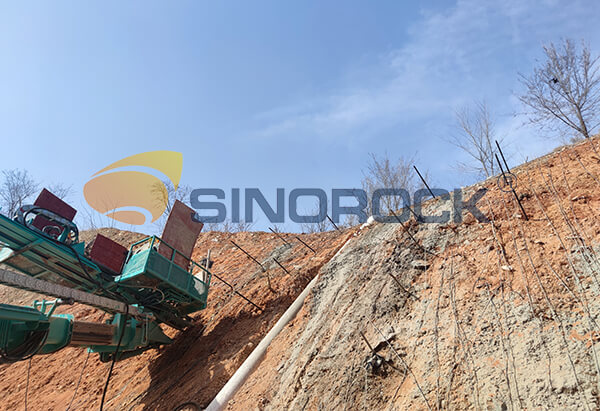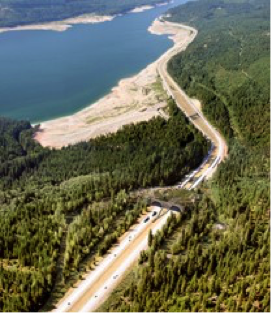In modern times, retaining walls are widely used in
various civil and construction projects, especially in highways, railways,
tunnels, water conservancy, revetment projects, and soil and water conservation
projects. It can also be said that it has developed and changed rapidly with
the development of modern industry, construction, transportation, municipal
administration, water conservancy, mining, and environmental protection
projects.
History of The Development of Retaining Walls

Gravity retaining walls are the oldest form of
retaining structure. It is still one of the most widely used retaining
structures because of its abundant material sources, convenient material
acquisition, simple form, and easy construction. In order to meet the requirements
of foundation bearing capacity and terrain conditions, semi-gravity and balance
weight retaining walls have been developed on the basis of gravity retaining
walls. The semi-gravity retaining wall can reduce the stress of the foundation
and reduce the requirements for the bearing capacity of the foundation; the
balance weight retaining walls is suitable for large sections of the ground.
In 1965, Planiers in the French Pyrenees built the
world's first reinforced earth retaining wall. After its success, this support
technique soon became popular in Europe. Then Canada, Japan, the United States
and so on successively applied.
Before the 1950s, anchor-pile
support technology was only used as a temporary measure in the construction
process. After the mid-1950s, western countries began to use small permanent
grouting anchors and shotcrete instead of lining structures in tunnel
engineering. After the 1960s, anchor-pile support developed rapidly and was
widely used in many fields of civil engineering. As a light retaining
structure, the anchored retaining wall has replaced the bulky gravity retaining
wall and is widely used in retaining projects such as roads, railways, coal mines support and
water conservancy.
Typically, soil nails are a commonly used support
material for existing retaining wall reinforcement projects. However, in the
face of loose geological conditions and easy hole-collapse, ordinary steel bars
will be slightly weak as soil nails. The self-drilling anchor bolt
combines the functions of drilling, grouting and anchoring together. When it is
used as a soil nail for construction, it can well solve the problem of hole-collapse.
The advantage of self-drilling anchor bolt supporting is that it has less
disturbance to the original soil mass with the characters of practical, safe
and economical.
The Future Development Trend of Retaining Wall

While researching and developing new structural
forms, the development and application of new materials and new techniques are
also new trends in the development of retaining walls.
In recent years, with the development of social
economy, the improvement of people's living standards and the emphasis on
environmental protection, engineers and technicians have begun to study the
coordination of retaining walls with the surrounding landscape, and developed ecological
retaining walls. It not only satisfies the use function of the retaining
wall, but also coordinates with the surrounding environment, and carries out
green cultivation on the wall.

Comments